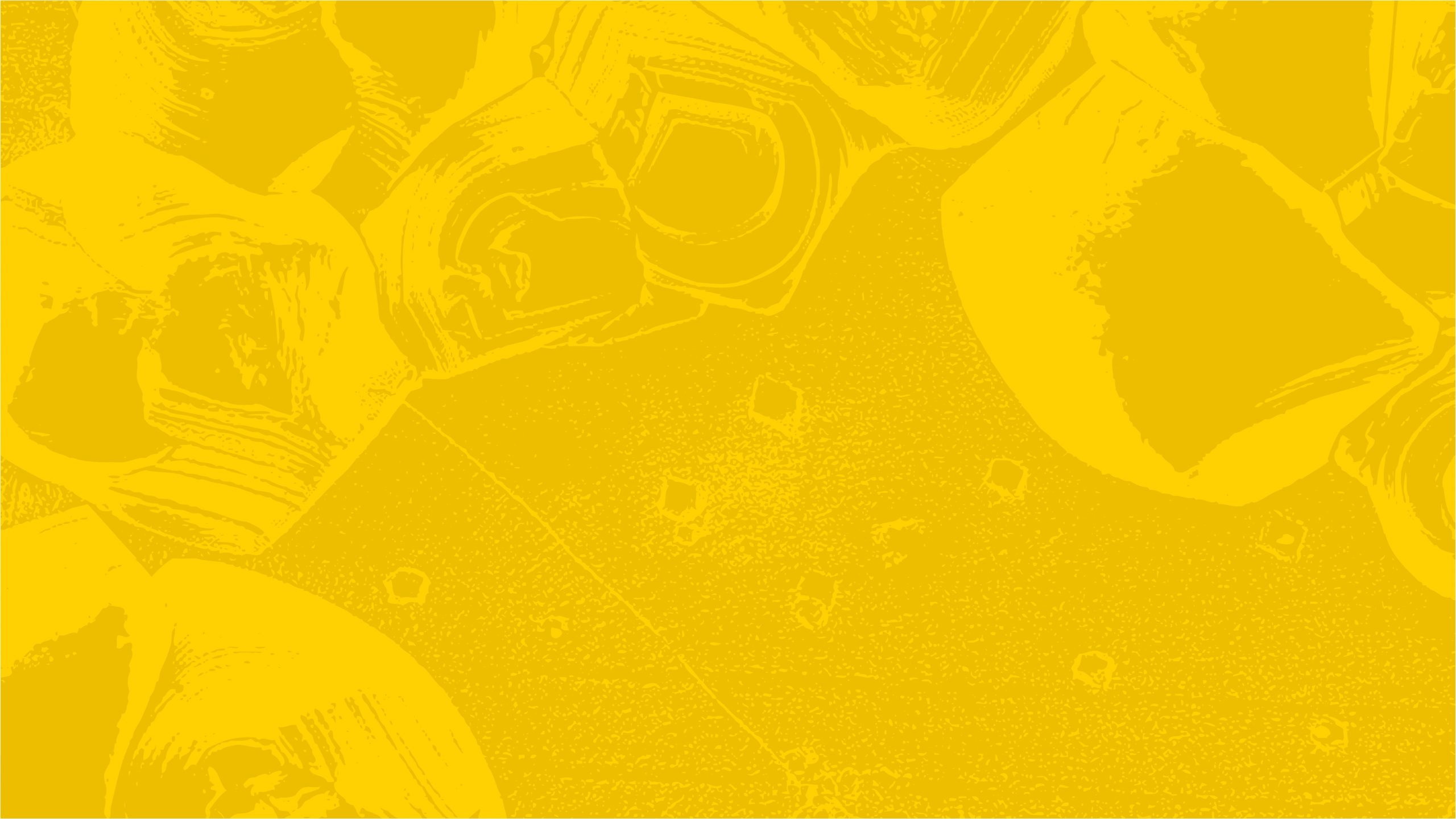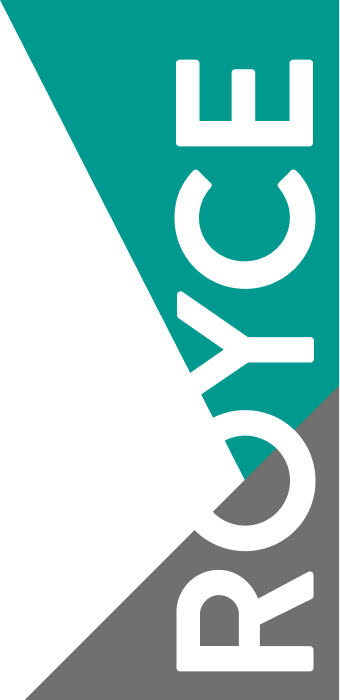EVENT POSTPONED UNTIL FURTHER NOTICE
This course provides a comprehensive introduction to the design and fabrication of personalised medical products using cutting-edge biofabrication tools and techniques. The content explores the complete biofabrication pipeline; starting from medical images, through advanced modelling, to approaches for 3D bioprinting. It will use real-world applications in personalised medicine and regenerative healthcare to convey wider context of the techniques and challenges users might face.
Application-focused case studies from tissue engineering, regenerative medicine, and medical implant design offer technical examples and insights into translating these approaches for personalise medicine.
For more information on the 3D bioprinting facilities at the Henry Royce Institute please view the Tomorrow Labs website.
BACKGROUND & MOTIVATION
Bioprinting is an emerging field within biofabrication that enables the creation of biological structures through the precise, layer-by-layer deposition of cells and biomaterials. These technologies are pivotal in tissue engineering and regenerative medicine, offering the ability to replicate native tissue architecture and functionality beyond what traditional 2D/3D cell cultures or animal models can achieve.
Bioprinted constructs are increasingly used in in vitro disease modelling, drug development, and basic biological research. As the field evolves, bioprinting is expected to play a transformative role in clinical applications — from personalised tissue grafts and implants to precision therapies that support healthy ageing and improved patient outcomes
A critical enabler of this personalised approach is the integration of medical imaging and 3D modelling, which allows for the fabrication of anatomically accurate, patient-specific constructs. In this course, participants will use MIMICS software — an advanced platform for medical image processing and segmentation — to convert clinical imaging data into printable digital models. This step is fundamental in both 3D printing and bioprinting workflows, bridging clinical imaging with customised manufacturing, and is increasingly relevant to research, innovation, and translational medicine.
Date: 8-10 December
Format: In-person
Cost: £240
Location: Henry Royce Institute, Royce Hub Building, University of Manchester
Audience
This course offers a broad introduction to scientific techniques and approached used in the field of bioprinting. It is suitable for researchers start out in the field or wanting to apply these new techniques to their own research.
- PhD researchers
- Early-career scientists
- Clinical researchers and junior doctors
- Biotechnology professionals
It is particularly valuable for those working in regenerative medicine, tissue engineering, medical device design, or translational biomedical research. Prior experience in bioprinting is helpful but not required as foundational principles and practical guidance will be provided throughout.
LEARNING OUTCOMES
After this course participants should be able to:
- Use MIMICS software to segment and model anatomical structures
- Prepare and optimise designs for 3D-bioprinting
- Define and select bioinks based on functional and printing requirements
- Optimise parameters for extrusion-based and multi-material printing
- Apply advanced techniques for soft and vascularised tissue constructs
- Consider key issues related to cell survival, construct fidelity, and clinical translation
FURTHER INFORMATION
The cost of the course includes catering duing the days of the event, one evening meal, and two nights of accommodation 8-10 December.
Spaces are limited to 12 participants and all applications must be completed in full. Applications will be reviewed by the organisers and before confirmation.
Staff and students at The University of Manchester interested in training should contact the laboratory directly: bioprinting.royce@manchester.ac.uk
PROGRAMME
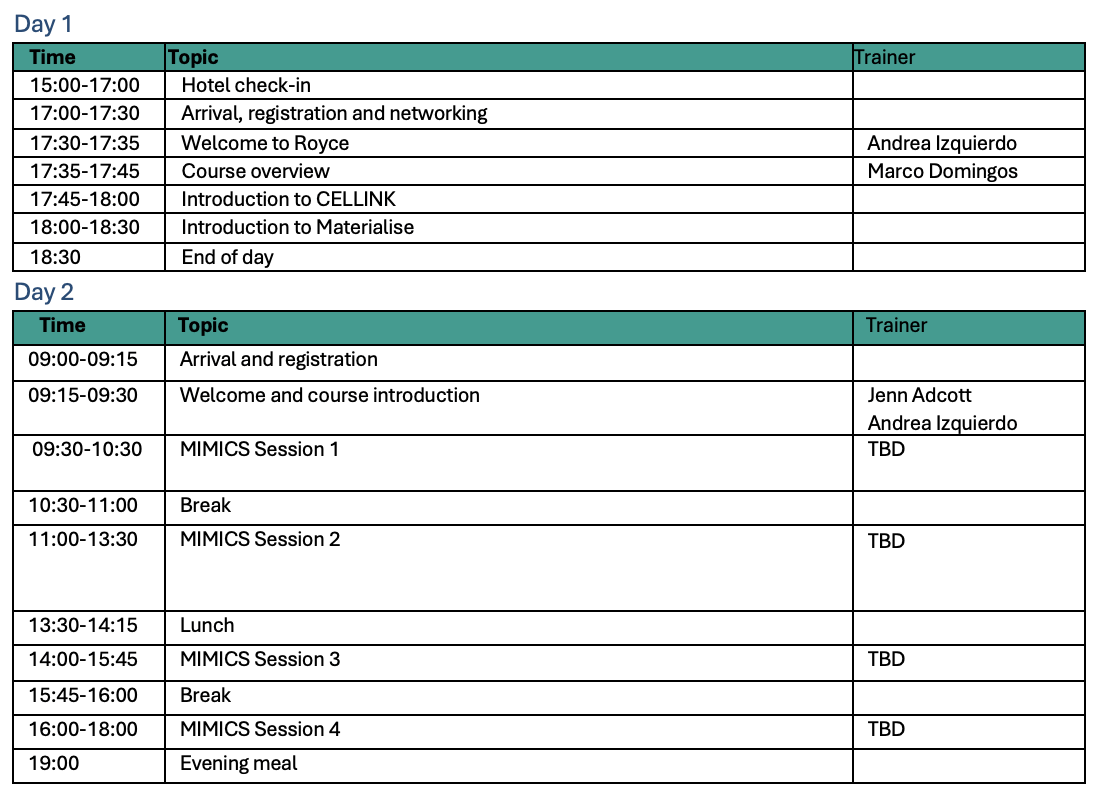
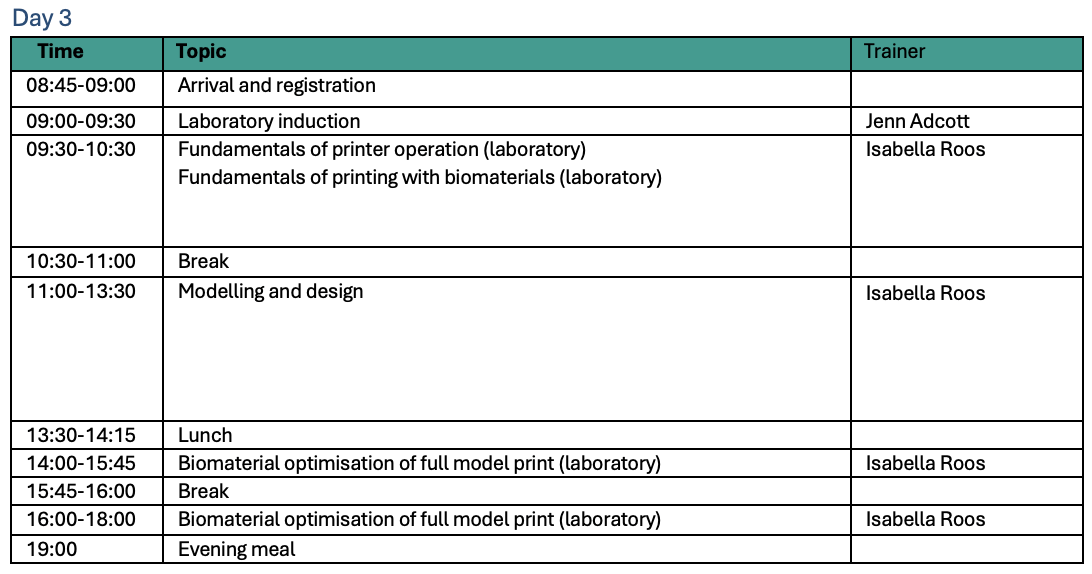
ORGANISERS
- Andrea Izquierdo – Henry Royce Institute
- Tom Hancocks – Henry Royce Institute
- Marco Domingos – The University of Manchester
December 10 2025
